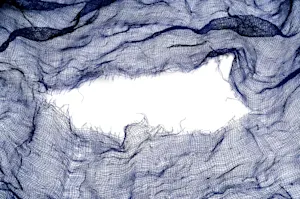What Makes This Word Tick
"Convoluted" is one of those words that just sounds complex, doesn’t it? With its twisty-turny cadence, it paints a picture that's never straightforward. It typically describes something that is intricately folded, complex, or labyrinthine, like a plot twist in an Agatha Christie novel.
If Convoluted Were a Person…
If convoluted were a person, it might be the eccentric uncle at family gatherings. You know, the one who tells stories about his travels but somehow every tale includes a detour through half a dozen unrelated topics. His narratives might confuse you, but they’re undeniably entertaining!
How This Word Has Changed Over Time
Originally borrowing from the Latin term "convolutus," meaning "to roll together," the word's historical uses picture something physically twisted. Over time, its metaphorical usage blossomed, now often referring to overly complicated arguments or plans rather than just physical objects.
Old Sayings and Proverbs That Use Convoluted
While "convoluted" doesn't star in age-old proverbs, it could comfortably fit into expressions like "don't beat around the bush"—essentially advising to be direct rather than intricate or complex.
Surprising Facts About Convoluted
Here's something curious: the word "convoluted" is often in the top lists of "words to use sparingly" in writing guides. Its very essence of complexity and intricacy can sometimes tangle up rather than clarify, so it is best selected with care.
Out and About With This Word
In daily life, "convoluted" finds its home in critiques of bureaucracy or movies with bewildering plots. Ever listen to a long-winded explanation that just leaves your head spinning? That’s where "convoluted" raises its hand as the perfect descriptor.
Pop Culture Moments Where Convoluted Was Used
In pop culture, "convoluted" often makes cameo appearances in reviews of works by directors like Christopher Nolan or writers such as George R.R. Martin. Who else could craft a narrative as intricate as a spider’s web?
The Word in Literature
Convoluted narratives abound in literature, often found in mystery novels or epic fantasies. Think of authors like James Joyce or William Faulkner, whose layered storytelling style fits this description to a T.
Moments in History with Convoluted
Imagine political debates or peace treaty negotiations through history. Think of the complex and often "convoluted" diplomatic discussions that shaped world events. The negotiation of the Treaty of Versailles comes to mind, where terms twisted and turned like a pretzel.
This Word Around the World
In other languages, the equivalent of convoluted might describe intricacies in both routes and reasoning. For instance, the Japanese term "複雑" (fukuzatsu) evokes similar feelings of complexity. In German, "verworren" or "kompliziert" might fill those convoluted shoes.
Where Does It Come From?
"Convoluted" hails from Latin roots, with "convolutus" meaning to roll together, suggesting intertwined complexity. It made its way into English, gaining richer, more abstract layers along its journey.
How People Misuse This Word
Some folks might use "convoluted" when they really mean simply complex or confusing. The true essence of "convoluted" carries layers of complexity, often unnecessarily intricate.
Words It’s Often Confused With
Complicated: While both suggest complexity, "convoluted" often implies needless or excessive intricacy.
Complex: A less negative version of "convoluted," often simply implying multiple parts.
Confusing: Relates to a lack of clarity rather than layered intricacy.
Additional Synonyms and Antonyms
Synonyms for "convoluted" include intricate, tangled, and involved. Its antonyms are straightforward, simple, and clear.
Want to Try It Out in a Sentence?
The movie’s convoluted plot left many viewers scratching their heads, trying to piece together the myriad twists and turns.
















